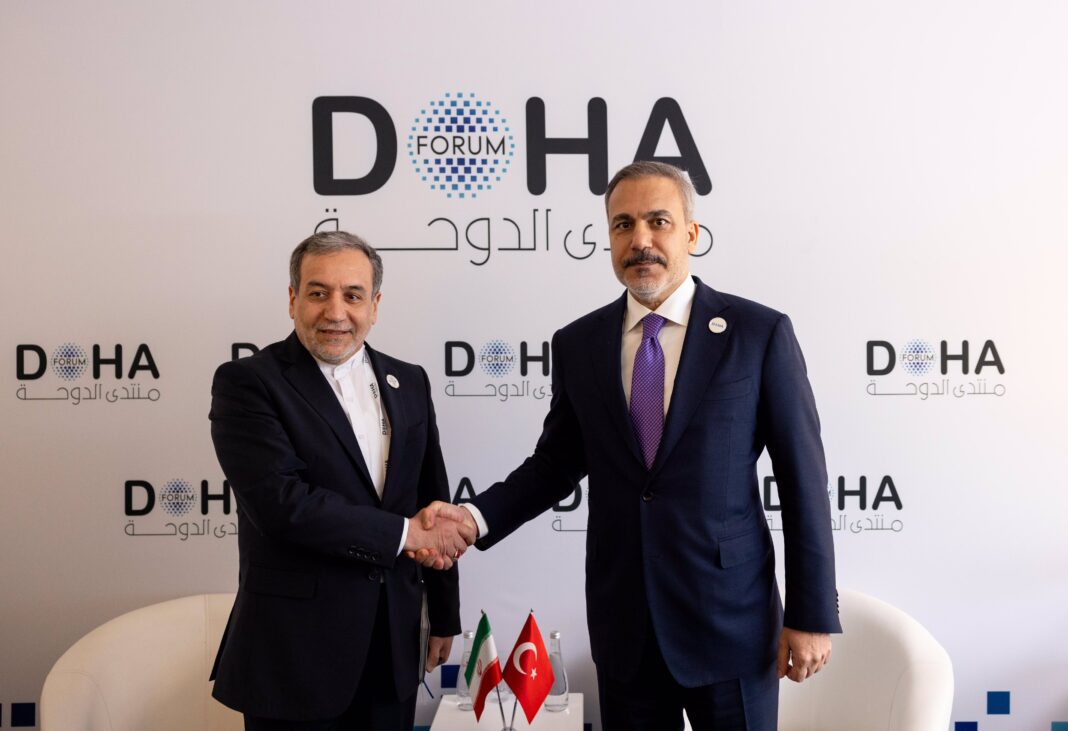Turkish Foreign Minister Hakan Fidan met with his Iranian counterpart Abbas Araghchi in Doha, Qatar, on Saturday to discuss developments in Syria ahead of the Astana-format foreign ministers’ meeting involving Turkey, Iran and Russia scheduled for Saturday afternoon, Turkey’s state-run Anadolu news agency reported, citing diplomatic sources.
The two ministers, attending the 22nd Doha Forum, had a “constructive and extensive” meeting focused on the latest developments in Syria, Anadolu quoted the sources as saying.
The talks come as Syria experiences renewed violence following a period of relative calm. On November 27, clashes broke out between Assad regime forces and anti-regime armed groups in the western countryside of Aleppo, intensifying a conflict that has spanned nearly 14 years.
Moscow and Tehran have offered military support to help Syrian President Bashar al-Assad crush the opposition.
The Astana process, launched in 2017, aims to address the ongoing crisis and facilitate a resolution to the protracted Syrian conflict.
Although the three countries support opposing factions in the Syrian civil war, they have a common interest in avoiding further chaos.
Turkey has backed various rebel groups and encouraged their recent advance toward Damascus. Analysts note that Turkey is focused on maintaining stability and creating a safe zone for the return of refugees, with Turkish President Recep Tayyip Erdoğan signaling support for the rebels without openly acknowledging direct military support for the new rebel offensive.
The meeting in Doha could mark a turning point.
Experts speculate that it could lead to talks on a transitional government in Syria, which could potentially sideline Assad.
Ankara’s relations with the Islamist group Hayat Tahrir al-Sham, which is heading the current offensive that led to capture of large swaths of territory with rebels reaching the gates of regime-held Homs city, remain tense but tactically significant.
Assad’s reluctance to engage with Turkey or its allies has frustrated even his supporters in Moscow and Tehran. Analysts point to Turkish-Russian cooperation and shared frustration with Assad’s intransigence, suggesting possible shifts in the region’s power dynamics, even if the outcome remains uncertain.



